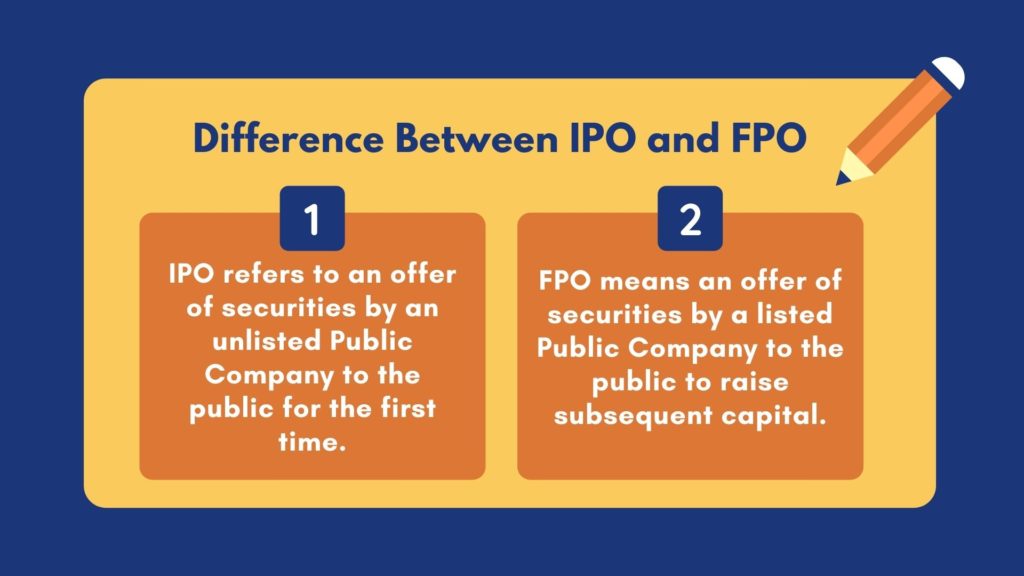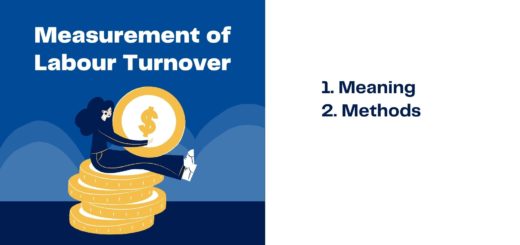Difference Between IPO and FPO (6 Points)
Table of Contents
Difference Between IPO and FPO
Meaning of IPO (Initial Public Offer)
The full form of IPO is Initial Public Offer it refers to the process of offering shares of a company to the public for the first time. A new company or an existing company that had raised its capital earlier from promoters or other investors may offer its shares to the public when it is in need of fresh funds. The first time, the company offers its shares to the public is called an Initial Public Offer.
Before IPO, a company is not a listed company and its shares are privately held. But after IPO, a company becomes a listed company and its shares can be bought and sold by investors in the open market.
A company can make an IPO through the fixed price Issue method or the Book-Building method.

Meaning of FPO (Further Public Offer)
The full form of FPO is Further Public Offer. When a company issues shares to the public after an IPO, it is called a Further (Follow-on) Public Offer. Thus, every issue of shares by a listed company after its IPO is called as FPO. FPO leads to an increase in the subscribed capital of a company.
- Difference Between Fixed Capital and Working Capital
- Difference Between Owned Capital and Borrowed Capital
- Difference Between Debenture and Share
- Difference Between Preference Shares and Equity Shares
Difference Between IPO and FPO
| Points | Initial Public Offer | Further Public Offer |
| 1) Meaning | IPO refers to an offer of securities by an unlisted Public Company to the public for the first time. | FPO means an offer of securities by a listed Public Company to the public to raise subsequent capital. |
| 2) Type of issuer company | It is issued by an unlisted Public Company. | It is issued by a listed Public Company. |
| 3) When issued | It is usually issued by an existing company which wants to raise capital from the public for the first time. | It is usually issued by a listed Public company when it wants to raise further capital from the public. |
| 4) Order of issue | IPO proceeds FPO. IPO is the first time sale of shares to the public. | FPO is always done after IPO. FPO is the second or subsequent sale of shares to the public. |
| 5) Listing | The company has to get itself listed for the first time before issuing IPO. | A company making an FPO is already a listed company. |
| 6) Risk | It is very risky for the investor as he cannot predict the company’s performance. | It is less risky for the investor as he has an idea of the company’s past performance and can judge its future performance. |


